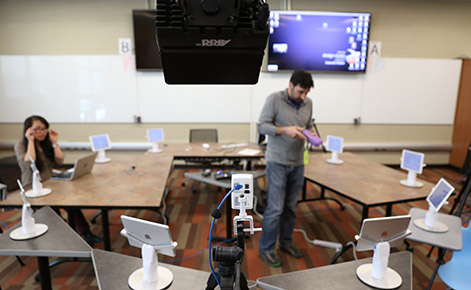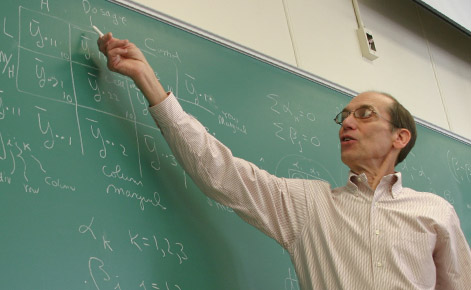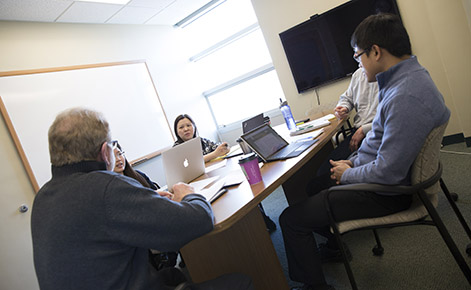The Department of Counseling, Educational Psychology, and Special Education (CEPSE) at Michigan State University is committed to the study of human learning and development across the life span. CEPSE faculty and students bring an important array of conceptual, technical and therapeutic perspectives to the study of learning in a wide variety of contexts.
Find Your Learning Path
The five program areas in CEPSE each offer different levels and modes of study within the field, including graduate certificates, hybrid and online only programs, but there are many opportunities to learn and collaborate across disciplines.
Educational Psychology and Educational Technology
MSU prepares educators to transf orm teaching and learning with technology through the innovative Master of Arts in Educational Technology (MAET) program, with courses online, in-person and overseas. The Master of Arts in Learning Experience Design program provides a critical lens of equity, accessibility, and social justice in human-centered learning and design.
orm teaching and learning with technology through the innovative Master of Arts in Educational Technology (MAET) program, with courses online, in-person and overseas. The Master of Arts in Learning Experience Design program provides a critical lens of equity, accessibility, and social justice in human-centered learning and design.
At the Ph.D. level, the Educational Psychology and Educational Technology (EPET) program, also available as a hybrid program, produces scholars and leaders in two interrelated study areas: human learning and development, and diverse technologies supporting education.
Measurement and Quantitative Methods

The Measurement and Quantitative Methods (MQM) doctoral program prepares scholars to specialize in educational research methodology, the development of educational and psychological tests, and the methodology of statistics as applied to educational research.
Counseling and Counselor Education

The Counseling and Counselor Education programs at MSU are among the nation’s top-ranked graduate programs. They have faculty members conducting research, teaching and practice that promote the quality of life and community participation of individuals with diverse disabilities, mental health and chronic health needs.
The CACREP-accredited master’s program in Rehabilitation Counseling prepares counselors to serve people with diverse disabilities based on a biopsychosocial model to promote self-determination, vocational development, independent living and community integration in community-based, vocational rehabilitation settings. A newly developed master’s program in Clinical Mental Health Counseling prepares counselors to work with individuals with mental health disorders, addictions, trauma and their families in a variety of clinical settings. The CACREP-accredited doctoral program in Counselor Education and Supervision prepares graduates to work as counselor educators, researchers and supervisors in academia and the community in the counseling and disability fields.
School Psychology

The School Psychology Program at Michigan State University can lead to an Ed.S. or a Ph.D. through small cohorts, renowned faculty and field experiences. School psychologists are prepared to work with educators, children, youth and families to promote learning and development particularly in relation to schooling.
Graduates of the Educational Specialist (Ed.S.) program are eligible for Michigan certification and the Nationally Certified School Psychologist (NCSP) credential. Graduates of the nationally accredited doctoral program are eligible to become licensed psychologists and state/national-certified school psychologists.
Special Education

Michigan State University prepares special education teachers, leaders and researchers to make a difference for students with various disabilities through the undergraduate teacher education program, multiple fully online master’s programs and a doctoral program.
Master’s level study includes Special Education, which can lead to teaching endorsements in learning disabilities and autism spectrum disorders; Applied Behavior Analysis, which prepares behavior analysts for educational settings; Applied Behavior Analysis and Autism Spectrum Disorders which helps students develop the skillset and knowledge to improve the lives of those with autism; and Multi-Tiered Systems of Support, which prepares leaders to enact educational and behavioral systems that support all students.
Funding Opportunities
Our Ph.D. programs offer extensive financial support for students, with guaranteed funding for up to five years. Learn more by contacting program directors. Learn about college-level assistantships and scholarships.
Students can also explore MSU-offered assistantships and fellowships.